Disclosure: This article contains affiliate links. We may earn a commission from purchases at no extra cost to you, which helps our travel content.
The golden light of dawn breaks across Lake Victoria as I sip my morning chai in Mwanza, mentally preparing for the adventure ahead. The bustling 'Rock City' of Tanzania serves as my gateway to one of Earth's most spectacular wildlife experiences—the Serengeti. But contrary to popular belief, you don't need a $500-per-day luxury lodge experience to witness the Great Migration or come face-to-face with the Big Five. After three visits to Tanzania spanning a decade, I've refined the art of experiencing this ecological wonder without emptying my bank account. This journey isn't just about saving money—it's about creating a more authentic connection with the landscape, the wildlife, and most importantly, the local communities whose ancestral knowledge of these plains stretches back millennia. Join me as I share how to transform the seemingly exclusive safari experience into an accessible adventure that honors both your budget and the cultural heritage of this remarkable region.
Planning Your Budget Safari: Breaking Down the Costs
When I first visited the Serengeti in 2014, I made every rookie mistake in the book—booking through international agencies, staying at mid-range lodges, and ultimately spending three times what was necessary. Now, after multiple visits and countless conversations with local guides and conservation officers, I've developed a framework that brings costs down without sacrificing the experience.
The traditional safari model—booking through overseas agencies that package everything together—typically starts at $250-300 per person per day at the bare minimum. By contrast, my most recent 5-day trip from Mwanza to Serengeti cost $620 total, breaking down to about $124 per day including everything from transportation to park fees.
The key is understanding where your money actually goes. Park fees are fixed costs ($60 per person per day for Serengeti), but transportation, accommodation, and guiding services have significant flexibility. By booking directly with local operators in Mwanza or through Tanzania-based online platforms, you can often save 30-40% compared to international booking sites.
Before departure, I always recommend investing in a good pair of binoculars. While your guide will have a pair to share, having your own means you won't miss that leopard lounging in a distant acacia while others are looking. They're also invaluable for bird watching, which becomes surprisingly addictive once you're immersed in the Serengeti's incredible avian diversity.
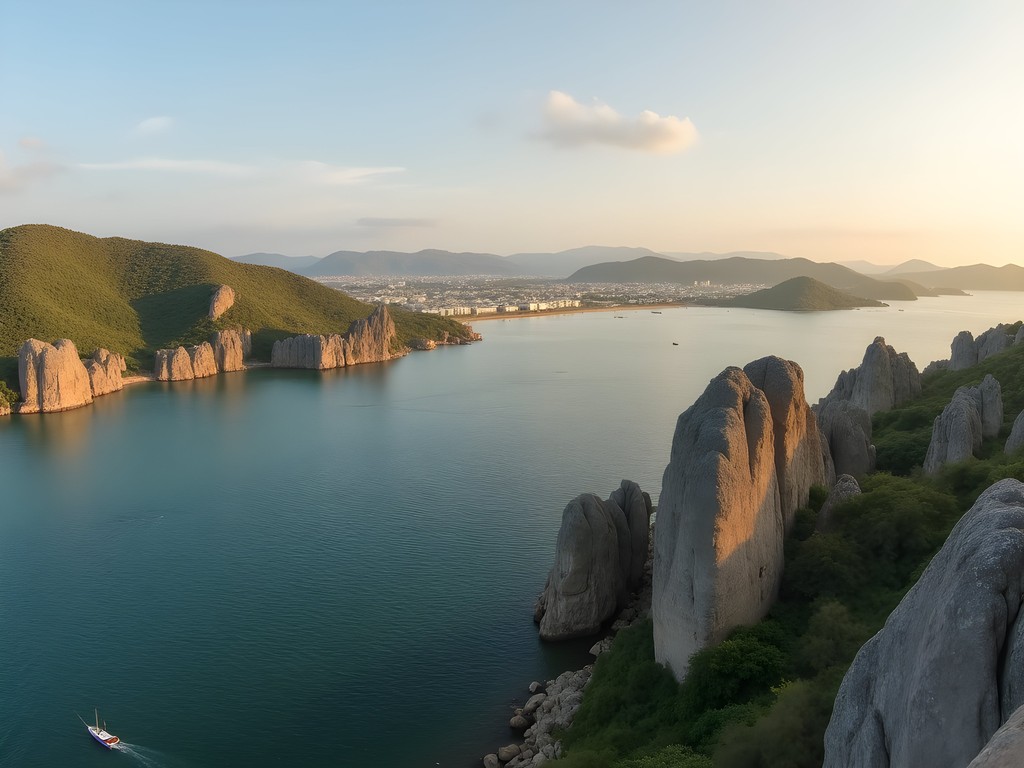
💡 Pro Tips
- Book directly with local Tanzanian tour operators instead of international agencies
- Travel with a group of 4-6 people to share vehicle and guide costs
- Visit during shoulder season (April-May or November) for significant discounts
Transportation Hacks: Getting from Mwanza to Serengeti
The journey from Mwanza to Serengeti offers multiple routes, each with its own budget implications. During my most recent trip, I discovered that the conventional wisdom of hiring a private 4x4 directly from Mwanza isn't always the most economical approach.
Instead, consider this three-stage approach that saved me nearly $200:
-
Mwanza to Bunda/Lamadi: Take a local dalla-dalla (minibus) from Mwanza's Buzuruga Bus Station to either Bunda or Lamadi towns. These run frequently, cost about 7,000-10,000 TZS ($3-4), and take approximately 2-3 hours.
-
Overnight in Lamadi: Stay in a simple but clean guesthouse near the park boundary for 25,000-35,000 TZS ($10-15). I recommend Serengeti Gateway Hotel in Lamadi, where the staff can help arrange your park entry for the next day.
-
Arrange a Park Vehicle: Rather than paying for a vehicle all the way from Mwanza, arrange for a safari vehicle to meet you at the park gate. Many budget operators based near the park entrances offer this service at 50-60% of what you'd pay from Mwanza.
For solo travelers or couples, another option is joining group safaris that depart from Mwanza. Local companies like Serengeti Value Safaris and Tanzania Joy Tours offer 3-day group departures for as low as $150-180 per day all-inclusive.
During the rainy season (April-May), roads can become challenging, so I always pack a waterproof dry bag to protect my camera equipment and documents. The last thing you want is your passport or camera getting soaked during a sudden downpour as you transfer between vehicles at the park entrance!
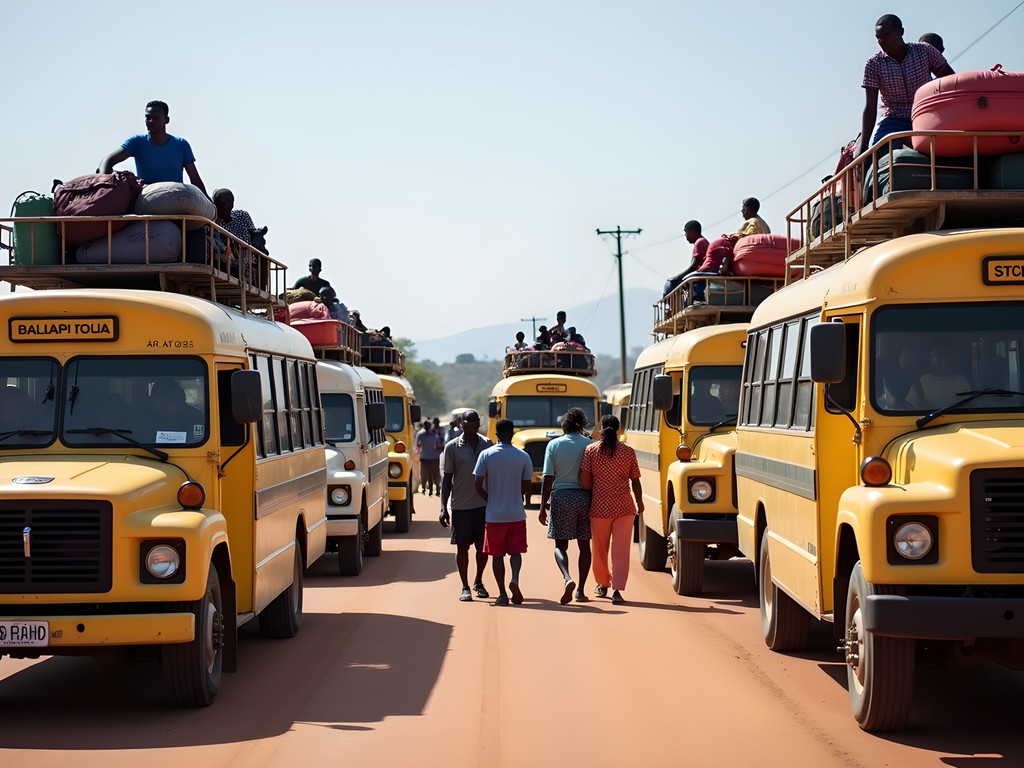
💡 Pro Tips
- Book accommodation near park gates rather than inside to save $40-60 per night
- Share transportation costs by connecting with other travelers via Facebook groups like 'Backpacking Tanzania'
- Confirm all park fees in advance as they change annually
Budget Accommodation: Where to Stay Without Splurging
Accommodation typically consumes the largest portion of a safari budget, but it doesn't have to. During my research work documenting archaeological sites near the Serengeti, I've discovered a spectrum of budget options that most tourists never hear about.
Public Campgrounds: The Serengeti has several public campgrounds managed by TANAPA (Tanzania National Parks) that cost around $30-35 per person per night. These sites at Seronera, Lobo, and near the Ndabaka Gate provide basic facilities including toilets, showers, and cooking areas. While they lack fencing, rangers patrol regularly, and the experience of hearing lions roar in the distance while you drift off to sleep is unparalleled. I still remember my first night at Lobo campsite, where a family of elephants silently moved through our camp around midnight—a heart-stopping yet magical experience.
Special Campsites: For a slightly more private experience, special campsites cost about $50 per site (not per person) and offer more seclusion. These require advance booking directly through TANAPA.
Budget Lodges Outside the Park: Staying just outside the park boundaries can save you $100+ per night. On my last trip, I discovered Panorama Safari Camp near the Western Corridor entrance, which offers comfortable permanent tents with proper beds for $45 per person including dinner and breakfast.
Hostels in Gateway Towns: In Mwanza, budget options like Mwanza Backpackers or Tunza Lodge offer dorm beds for $12-15 and private rooms for $25-35—perfect for the nights before and after your safari.
For camping, a quality headlamp is essential. After sunset in the campgrounds, you'll need reliable hands-free lighting to navigate between your tent and facilities, and to deter curious wildlife with a quick flash of light if necessary.
Remember that inside the park, you'll need to bring your own food supplies or arrange meal service through your tour operator. Most budget operators include basic but filling meals in their packages, typically featuring local staples like ugali (maize porridge), rice, beans, and occasionally grilled meat or fish.
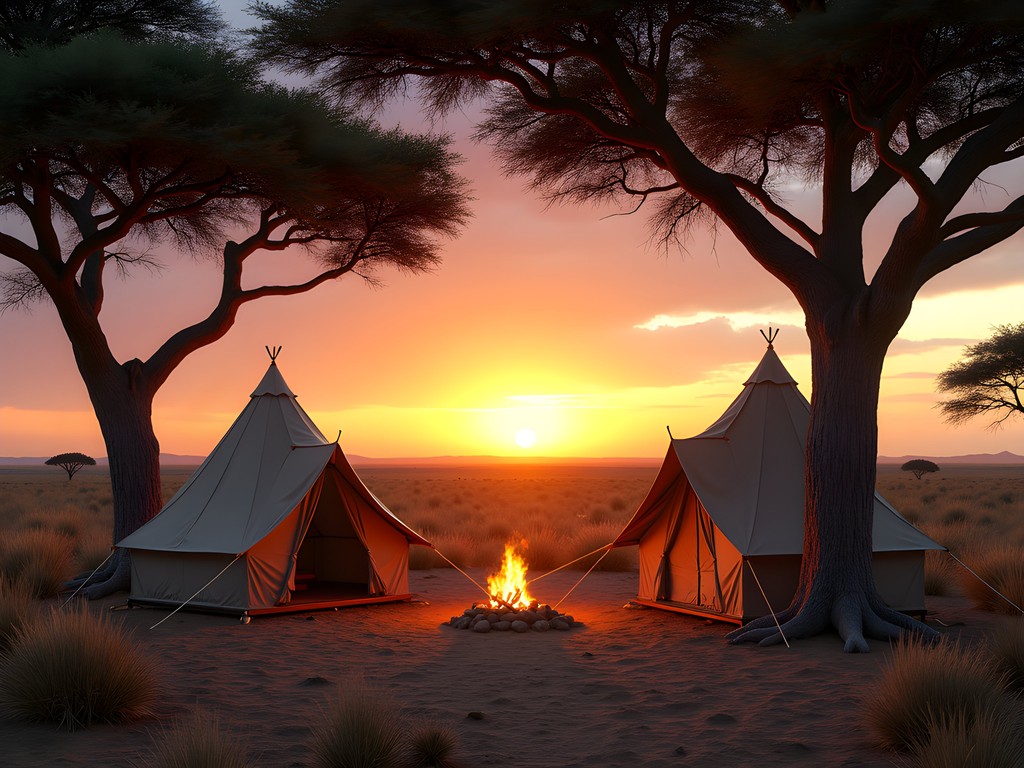
💡 Pro Tips
- Book campsites directly through TANAPA for best rates (requires advance planning)
- Bring your own sleeping bag even when staying in budget tents to ensure comfort
- Pack earplugs for public campgrounds where other groups may be noisy
Cultural Connections: Enriching Your Safari Experience
A truly meaningful Serengeti experience extends beyond wildlife viewing to understanding the human history and contemporary cultures of this ancient landscape. The plains we now call Serengeti have been home to indigenous communities for thousands of years, with archaeological evidence of human habitation dating back over 200,000 years.
As someone with indigenous heritage myself, I'm particularly sensitive to how local communities are often sidelined in tourism narratives. My documentary background has taught me that the richest travel experiences come from connecting with local knowledge keepers—and budget travel actually facilitates this better than luxury options.
Visit Maasai Communities Ethically: Many budget safari operators include visits to Maasai villages in their itineraries. However, some of these can feel staged and exploitative. I recommend asking specifically for operators who work with community-based tourism initiatives where proceeds directly benefit local schools and healthcare. Tanzania Cultural Tourism Programmes, a network supported by the Tanzania Tourist Board, offers authentic cultural experiences with fair compensation to communities.
Local Guides Make All the Difference: When selecting a budget safari, prioritize companies that employ guides from local communities. Not only does this provide employment where it's needed most, but these guides possess generational knowledge of the ecosystem that no university-trained naturalist can match. My guide Ibrahim, a Sukuma man from near Mwanza, could identify birds by their calls alone and knew exactly where to find elusive leopards based on subtle seasonal patterns.
Language Connection: Learning even a few phrases in Swahili creates meaningful connections. Simple greetings like "Jambo" (hello), "Asante" (thank you), and "Habari za asubuhi" (good morning) open doors to conversations that might otherwise remain closed.
Before my trip, I always brush up on local customs and history with a good Tanzania guidebook. Unlike general Africa guides, this one specifically covers the cultural contexts and wildlife information relevant to Tanzania's northern circuit, with detailed sections on the indigenous communities around Serengeti.
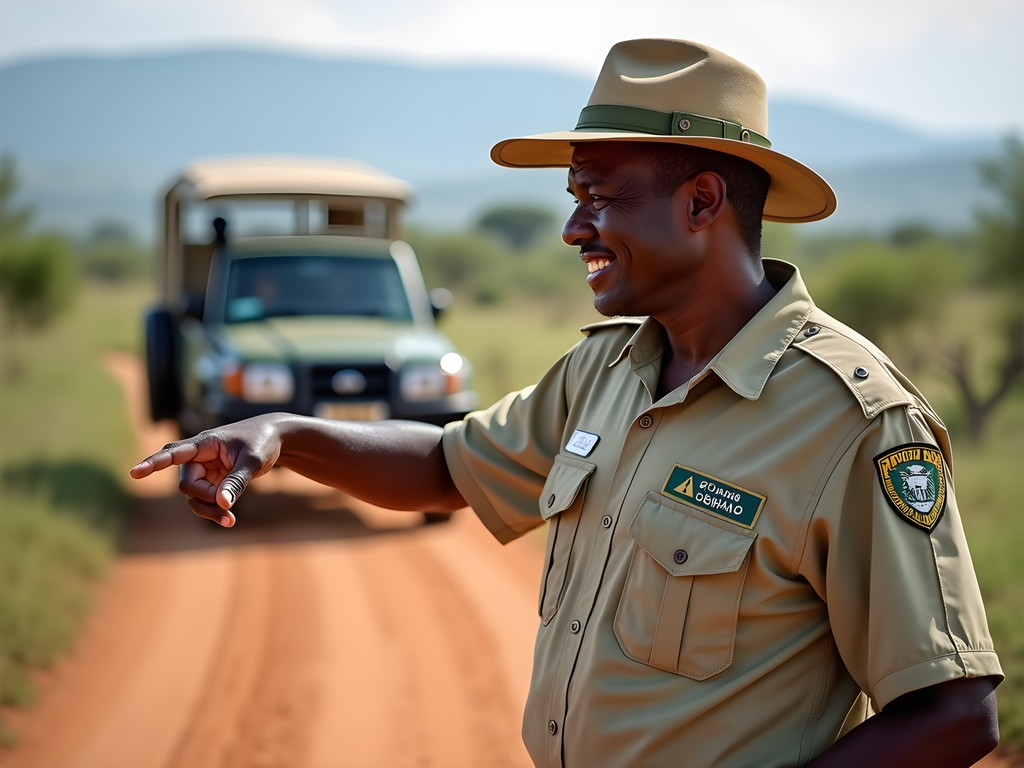
💡 Pro Tips
- Learn 5-10 basic Swahili phrases to connect with local staff and communities
- Ask your guide about their personal connection to the region for deeper insights
- Support community craft cooperatives rather than commercial souvenir shops
Wildlife Viewing Strategies on a Budget
The primary purpose of any Serengeti visit is witnessing its extraordinary wildlife, and budget constraints shouldn't diminish this experience. In fact, some of my most memorable wildlife encounters have occurred during my most economical trips.
Timing Is Everything: If your schedule is flexible, plan your visit during shoulder seasons (April-May or November). Not only are rates lower, but the tourist crowds thin significantly. My April visit coincided with occasional rain showers but offered the advantage of lush landscapes and newborn animals. The dramatic thunderstorms rolling across the plains created photographic opportunities that simply don't exist in the dry season.
Location Strategy: Rather than trying to cover the entire Serengeti (which is roughly the size of Connecticut), focus on specific regions based on seasonal wildlife movements. During June-October, concentrate on the Northern Serengeti near the Mara River for migration crossings. In December-March, the Southern Plains become the epicenter of wildlife activity during calving season.
Extended Game Drives: Budget safaris typically include two game drives daily—early morning and late afternoon. However, I've found that negotiating for longer, continuous drives with a packed lunch can be more economical and productive than returning to camp midday. This approach minimizes fuel consumption (a major cost factor) while maximizing wildlife viewing opportunities.
Self-Guided Learning: While premium safaris might include specialist guides, budget travelers can prepare by studying wildlife in advance. I load my tablet with field guides, offline maps, and wildlife documentaries about the Serengeti ecosystem. Having this reference material on hand enriches the experience tremendously and allows you to ask more informed questions of your guide.
Photography Without Expensive Gear: You don't need a $3,000 telephoto lens to capture memorable Serengeti moments. Modern smartphones with digital zoom can take surprisingly good wildlife photos, especially in good light. For better results without breaking the bank, consider renting equipment in Arusha or Mwanza before your safari—many photography shops offer weekend rates for decent zoom lenses at a fraction of the purchase price.
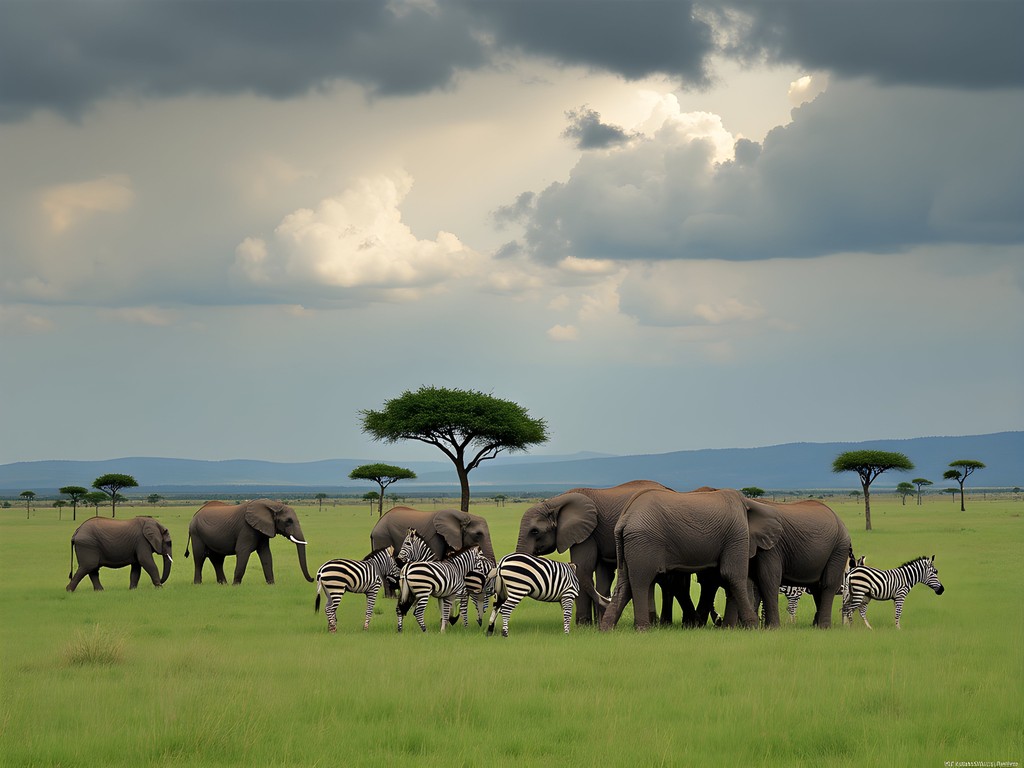
💡 Pro Tips
- Focus on one region of Serengeti rather than trying to see everything to minimize transportation costs
- Request packed lunches for full-day game drives instead of returning to camp
- Visit during green season (April-May) for lower rates and fewer crowds
Final Thoughts
As I watch the sunset paint the acacia-dotted horizon from a simple camp chair outside my tent, sipping tea with my guide Ibrahim, I'm reminded that the most profound safari experiences aren't measured by thread counts or gourmet meals. They're found in moments of connection—with the land, the wildlife, and the people who call this place home. By choosing a budget approach to the Serengeti, you're not just saving money; you're often gaining a more authentic experience that brings you closer to understanding this complex ecosystem and the communities who have stewarded it for generations. The Serengeti doesn't have to be an exclusive playground for the wealthy. With careful planning, cultural respect, and the willingness to step slightly outside your comfort zone, these endless plains become accessible to travelers with modest budgets but unlimited curiosity. So pack your binoculars, learn a few phrases of Swahili, and prepare for wildlife encounters that will forever change how you see our natural world—all without breaking the bank.
✨ Key Takeaways
- Book directly with local operators to save 30-40% compared to international agencies
- Consider multi-stage transportation to reach Serengeti rather than hiring a vehicle from Mwanza
- Public campgrounds and budget lodges outside park boundaries offer authentic experiences at a fraction of luxury prices
- Shoulder seasons (April-May and November) offer the best combination of wildlife viewing and reduced costs
📋 Practical Information
Best Time to Visit
April-May (green season) or November (short rains) for budget travelers
Budget Estimate
$120-180 per person per day all-inclusive
Recommended Duration
4-6 days (including travel days from Mwanza)
Difficulty Level
Moderate

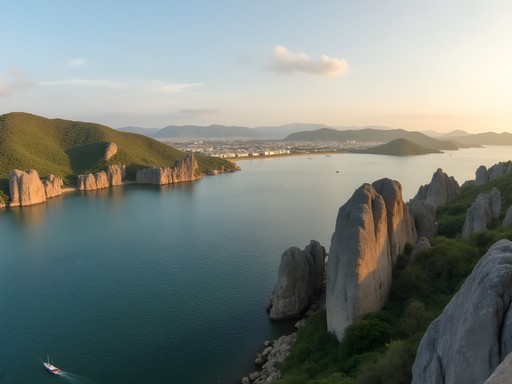
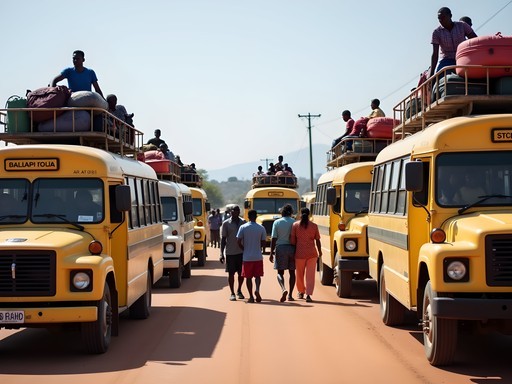
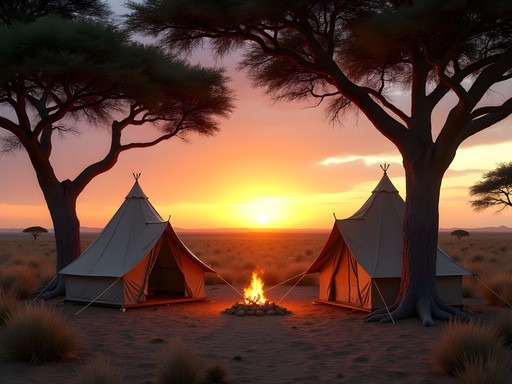
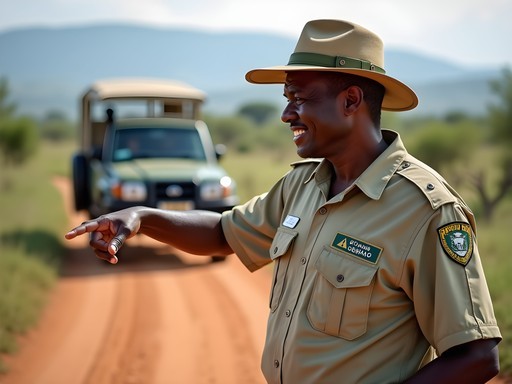
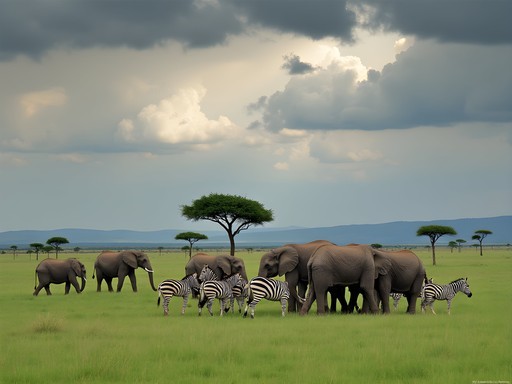


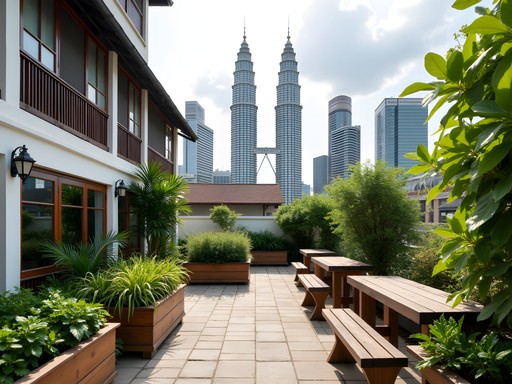
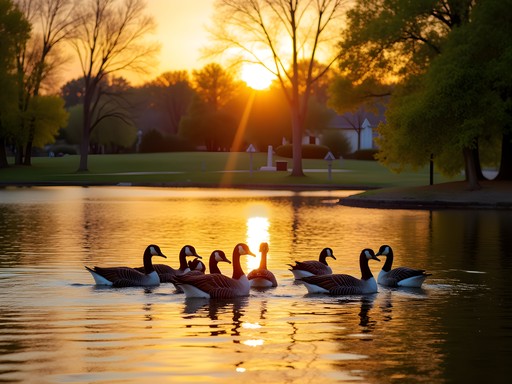
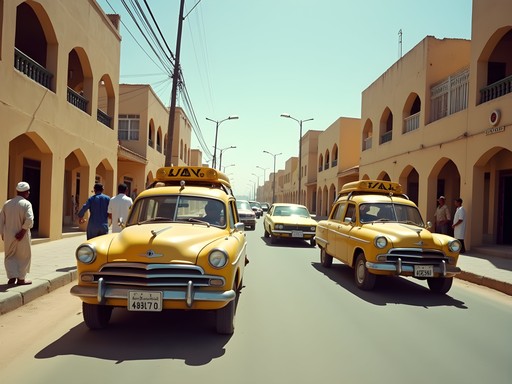
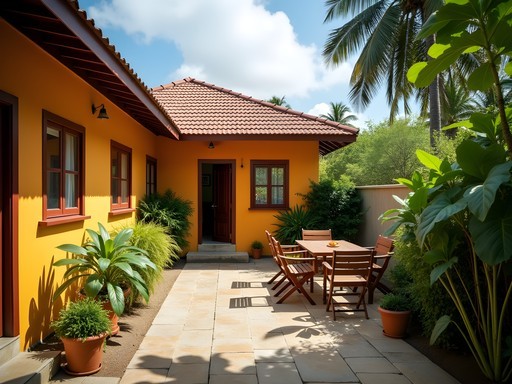
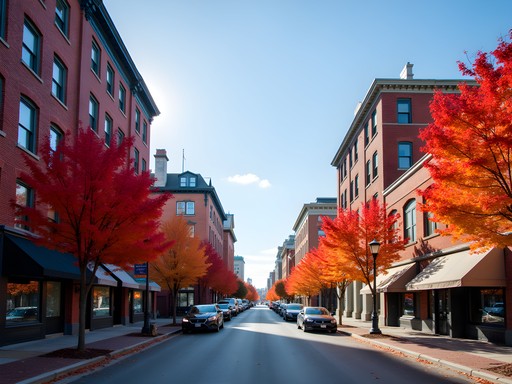
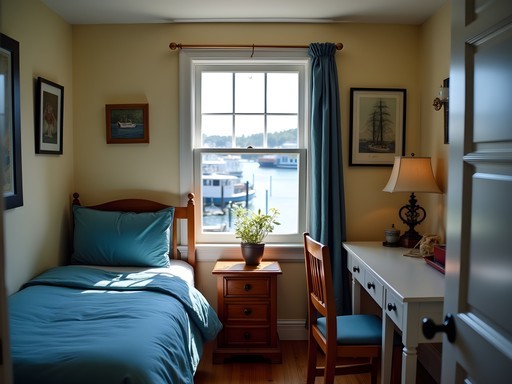
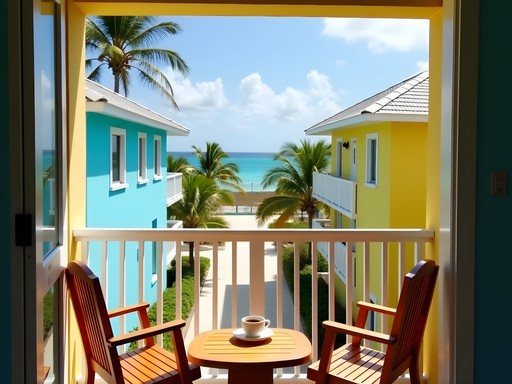
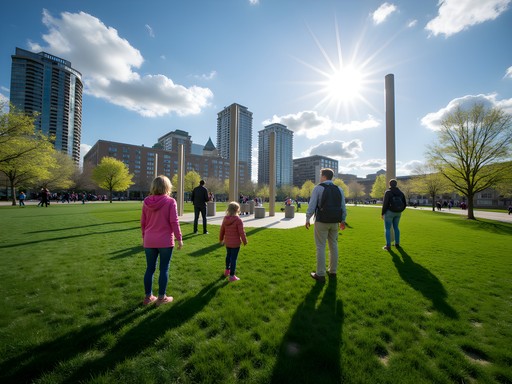
Comments
triplife
The cultural village visits are so underrated. We spent an afternoon with a Maasai community near the park and it was honestly one of the best parts of the whole safari. Cost like $20 and included lunch. Way more authentic than the tourist trap villages some of the expensive tours take you to.
Sophia Gomez
Yes! Those community visits are incredible. The hospitality and willingness to share their culture is so genuine.
tripblogger
Love this! Saving for my trip next year.
Sophia Gomez
Ella, this brings back memories! I took a similar route two years ago and you've captured the magic of doing Serengeti on a budget perfectly. The sunrise over Lake Victoria in Mwanza is something I still dream about. One tip I'd add for other travelers - if you're camping, the nights get COLD even though the days are hot. I learned that the hard way my first night. Also, connecting with local guides like your Ibrahim really does transform the experience. They know the animal movements and the best spots that the big tour groups miss. The stories and cultural insights are worth more than any luxury lodge could offer.
photoway
Great post! I did the dalla dalla from Mwanza last year and it was an adventure for sure. One thing I'd add - if you're doing the public bus route, bring snacks and water because the stops are unpredictable. Also, I found a driver in Mwanza through my hostel who did shared safari trips. Split the cost with 3 other travelers and it came out to like $150 per person for 3 days. His name was Daniel if anyone wants the contact. The budget camping sites near Seronera are actually pretty decent too.
skyqueen
Would love Daniel's contact info! Can you DM me?
tripblogger
The shared safari idea is genius! Didn't even think of that option.
skyqueen
This is so helpful! How much did you spend total for the whole trip? Planning to go in June and trying to figure out my budget.
triplife
Not the author but I did this route last year - spent about $600 for 4 days including transport, park fees, and camping. Way cheaper than the luxury lodges!
journeystar
Did this last year! The budget accommodation tips saved us so much. That sunset with Ibrahim sounds magical!
citylife
Is July too crowded for this? Planning my first Africa trip!
Ahmed Palmer
July is peak season due to the migration, so expect higher prices and more vehicles. Consider early June or late August for a better balance of wildlife viewing and lower crowds.
George Hayes
We just returned from doing this exact route with our kids (ages 8 and 11), and I can confirm Ella's budget tips saved us nearly $1000! The shared transportation was a highlight for the children—they made friends with local kids despite the language barrier. One addition: we found a family-run guesthouse in Bunda (halfway point) that was perfect for breaking up the journey and cost only $35 for a family room. The owner even packed us lunch for the next day. For wildlife viewing, we invested in a decent pair of binoculars which made all the difference when spotting distant animals. Our kids still talk about the elephant herd we watched at sunset near Seronera.
coolninja
George, would you mind sharing the name of that guesthouse in Bunda? Sounds perfect for my trip next month!
George Hayes
It's called Mama Sophia's Guesthouse. Not online - just ask locals when you get to Bunda. Tell her George from America sent you!
wintertime
Those sunset photos are incredible! Adding this to my bucket list right now.
wildseeker
Anyone know if it's possible to do this trip in 4 days total from Mwanza and back? We're super short on time but really want to see the Serengeti. Also, did you need to bring cash for everything or are cards accepted in some places?
journeystar
Did it in 5 days last year, 4 would be tight but doable if you skip the Ngorongoro part. Bring cash! Very few places accept cards outside of fancy lodges.
wildseeker
Thanks! Good to know about the cash situation.
Venture X
Premium card with 2X miles, $300 travel credit, Priority Pass